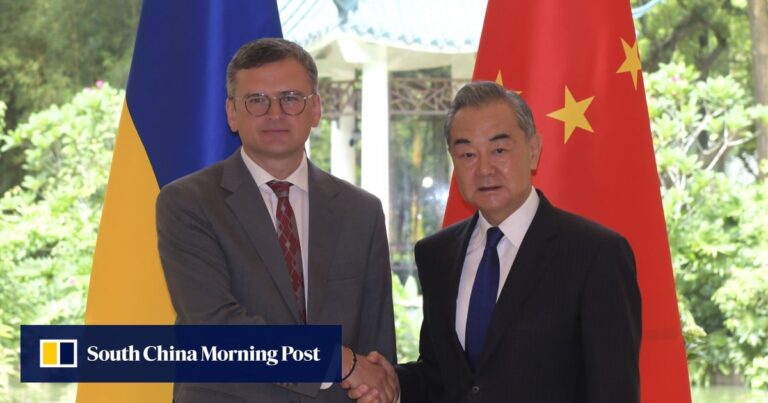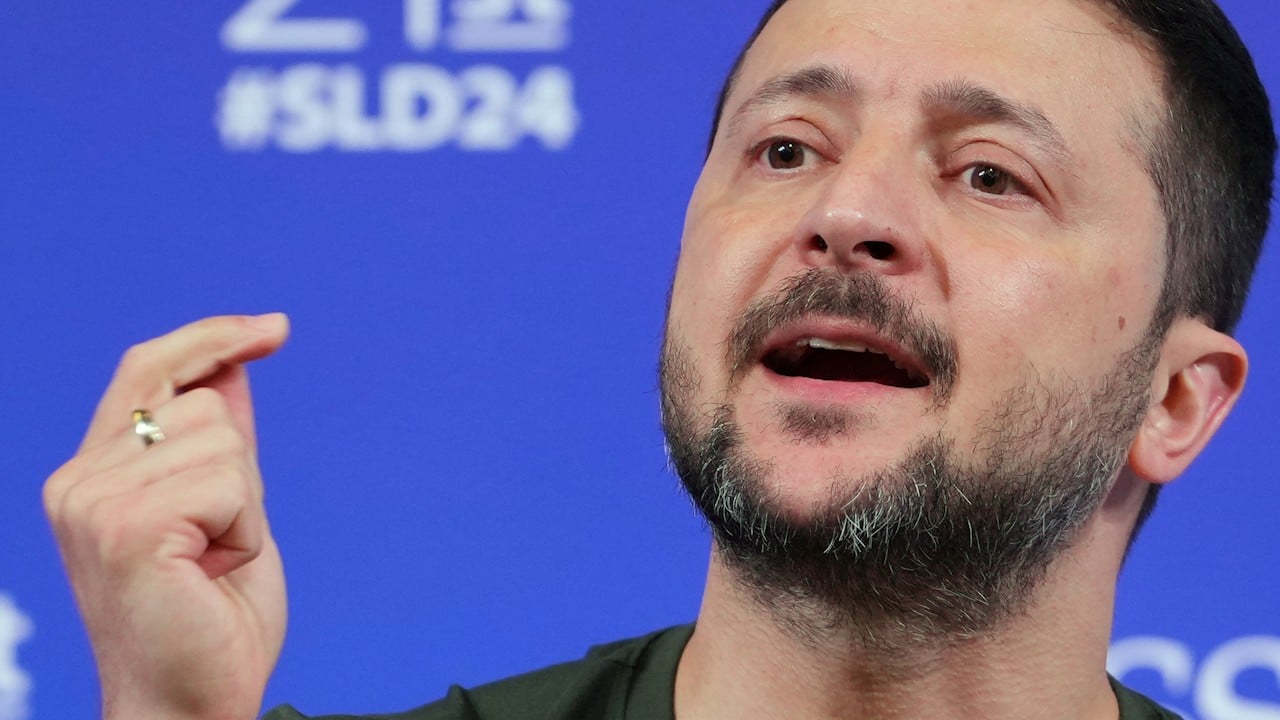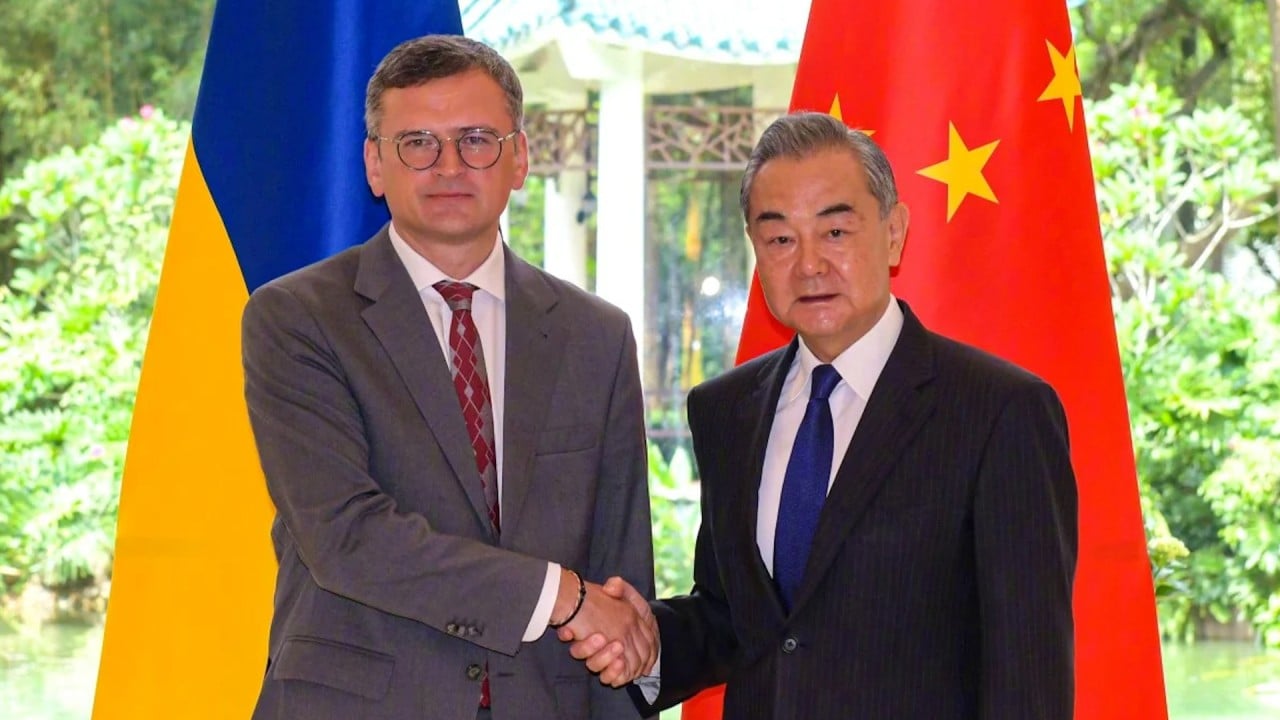The choice signals China’s intention to repair strained relations with Ukraine amid the war, but it could also have been a strategic decision by Beijing to maintain ties with Russia, they said.
Wang Yiwei, a professor of international relations at Renmin University of China, said the Guangzhou meeting was chosen as a “less formal” venue and held in a more relaxed atmosphere following Ukraine’s recent criticism of China’s role in the war.
China, which has assumed the role of peace negotiator in the conflict, was absent from the summit, to which Russia was not invited. China instead called for a fair summit with equal participation of Russia and Ukraine.
“Instead of criticizing China, [Ukraine] We hope that China will play a mediating role in the future,” Wang said.
“for [Ukraine]”We should first enter into negotiations with China, hear directly from the Chinese side and see if the two sides can work together to find a solution to the conflict.”
In Guangzhou, Wang told Kuleba that China was committed to playing a constructive role in promoting a ceasefire and the resumption of peace talks, and Kuleba said China was ready to negotiate directly if Russia was ready “in good faith,” but Kuleba said Moscow was “not ready.”
Speaking to Ukrainian media outlet TSN after his meeting with Wang, Kuleba said he had received a clear signal from the Chinese side that it wanted a sustainable but “non-temporary” solution to the conflict.
“Those who believe that China is on the side of Russia or Ukraine are either deeply mistaken or have only a superficial view of China’s strategic vision for the development of not only Ukraine but also the world situation,” Kuleba said.
Guangdong is an economic powerhouse and China’s largest province in terms of GDP, which exceeded 13 trillion yuan (US$1.8 trillion) last year.
Kuleba visited Hong Kong on Thursday and met with business representatives and Chief Executive John Lee, who called for stronger trade ties with the city but warned that it was being used to circumvent sanctions against Russia.
The United States and the EU have imposed sanctions on more than 10 Hong Kong companies for allegedly transferring dual-use products to Russia to support Russia’s war effort.
Bjorn Alexander Duben, a lecturer in Chinese and Russian studies at Forward College, University of London in Berlin, said economic ties could be behind Kuleba’s visit to southern China, but he didn’t think that was the “main motivation.”
“Beijing may have deliberately arranged for the meeting to be held outside the capital in order to subtly and symbolically downgrade the talks vis-à-vis its diplomatic ties with Russia,” he said.
He noted an “interesting contrast” with Russian Foreign Minister Sergey Lavrov’s visit to Beijing in April, where he was welcomed by Xi.
“Perhaps Guangzhou was chosen as the venue to make this contrast seem less stark and to create a spatial distance during Xi and Kuleba’s visit.”
Analysts also speculated that Kuleba’s trip was planned to coincide with his own travel schedule or with Wang’s attendance at the ASEAN summit in Laos on Thursday.



